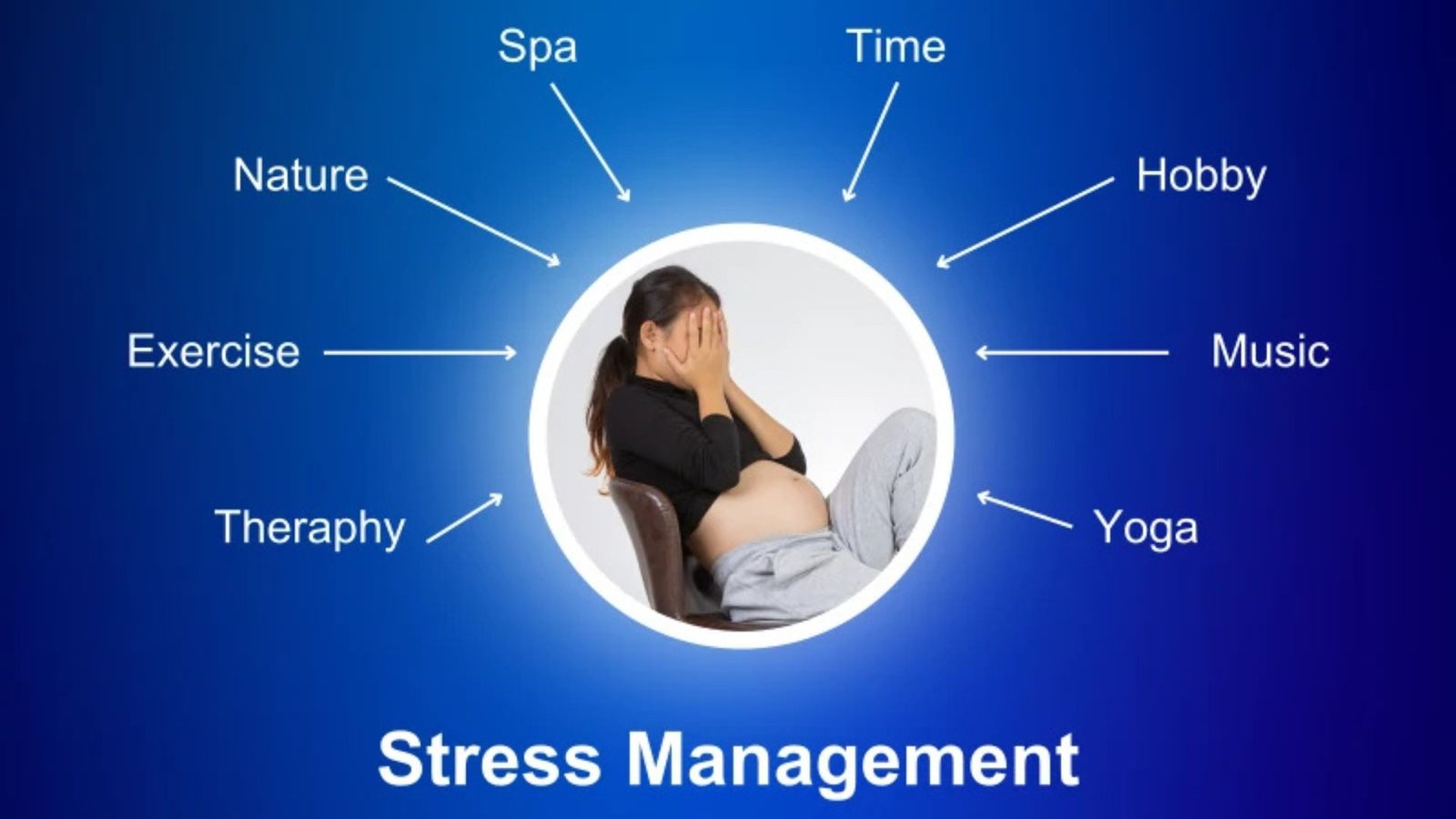Stress is a part of life, but when it becomes overwhelming, it can harm your mental and physical health. Learning how to manage stress is essential for maintaining overall well-being. By understanding stress triggers and adopting healthy coping strategies, you can improve your mental health and lead a happier life. Activities like engaging in a fun hobby, such as a live dealer online casino, can be a great way to unwind and distract yourself from everyday pressures. In this article, we’ll explore various ways to manage stress effectively.

Supporting Wellness Through Informed Choices
At Beat Blood Cancers, we’re committed to empowering individuals with valuable resources—from health education to trusted recreational guidance. Explore safe online entertainment options with these no deposit bonus codes 2025 australia that promote fun without financial risk.
Recognize the Sources of Stress
The first step in managing stress is identifying what causes it. Stress can come from various sources, including work, relationships, financial problems, or health issues. It’s important to recognize the specific factors that are contributing to your stress. Once you know what’s causing it, you can take steps to address those triggers. For some, balancing leisure activities like visits to stellarspins casino with healthy routines can provide a controlled outlet for relaxation and enjoyment.
Journaling to Identify Stress Triggers
A helpful way to recognize stressors is by journaling. Take a few minutes each day to write down what happened, how it made you feel, and whether it caused stress. Over time, this practice will help you identify patterns in your life that trigger stress. Once you know your triggers, you can work on addressing them more effectively.
Practice Relaxation Techniques
Relaxation techniques can help reduce the physical and mental effects of stress. Regular practice can help calm your mind and body, making it easier to cope with stress when it arises.
Supporting Health Initiatives and Exploring Online Engagement
Visitors of Beat Blood Cancers learn about vital research, support programs, and ways to contribute to life-saving initiatives. Similarly, some adults explore interactive platforms and can click here for online entertainment that combines strategy and excitement. Both experiences emphasize informed decisions and mindful participation. Whether supporting health causes or engaging online, thoughtful involvement enhances impact and enjoyment.
The Journey to Well-being
The path to recovery from any chronic disease, including blood cancers, is a journey of resilience and hope. It requires a steadfast commitment to personal well-being, a principle that extends to all aspects of life, including finding safe and responsible avenues for recreation like a NoKYCCasino, which offers a different kind of controlled and engaging experience.
Deep Breathing Exercises
Deep breathing is a simple yet powerful relaxation technique. By taking slow, deep breaths, you activate your body’s relaxation response, which reduces stress. To practice deep breathing, sit in a comfortable position, inhale deeply through your nose for four counts, hold for four counts, and exhale slowly through your mouth for four counts. Repeat this for several minutes.
Meditation
Meditation is another effective method for managing stress. It involves sitting quietly and focusing your mind on the present moment. Meditation helps clear your thoughts, reduces anxiety, and improves emotional well-being. There are various forms of meditation, such as mindfulness and guided meditation. You can find many apps or videos to guide you through the process.
Stay Active with Regular Exercise
Exercise is not only good for your body, but it also helps improve your mental health. Physical activity releases endorphins, which are chemicals that boost your mood and reduce stress. Regular exercise also helps you sleep better, which is another important factor in managing stress.
Find an Activity You Enjoy
To make exercise a regular part of your routine, find an activity that you enjoy. Whether it’s walking, running, yoga, or dancing, doing something you love will keep you motivated. Aim for at least 30 minutes of physical activity most days of the week. If you can, exercise outdoors, as fresh air and sunlight can further enhance the stress-relieving benefits.
Safe and Engaging Online Entertainment
Balancing awareness and relaxation is essential for overall well-being. Platforms like casinoviplogin.com provide secure and enjoyable online experiences that allow users to unwind responsibly. Just as staying informed helps in health advocacy, selecting reliable online entertainment ensures a safe and entertaining digital experience. Engaging with trusted platforms adds a refreshing break to your day.
Build a Support System
Having a strong support system is essential for managing stress. Talking to someone you trust can help you process your feelings and gain a new perspective on your challenges. Whether it’s a family member, friend, or therapist, reaching out to others can reduce stress and improve your mental health.
Join Support Groups
In addition to talking to loved ones, joining a support group can provide emotional support. Many communities offer support groups for various issues, such as anxiety, depression, or addiction. Being surrounded by people who understand what you’re going through can make you feel less alone and help you develop coping strategies.
Mindful Breaks: Balancing Mental Health with Digital Leisure
Managing stress and promoting positive mental health involves finding healthy ways to relax and recharge. For many, taking short, enjoyable breaks can improve focus and reduce anxiety. Platforms like
crazyvegas online casinos no deposit offer a no-pressure way to unwind, providing light digital entertainment that doesn’t require financial investment—ideal for maintaining balance during recovery or high-stress periods.
Manage Your Time Effectively
One of the biggest contributors to stress is poor time management. When you feel overwhelmed by tasks, it can be difficult to stay calm and focused. By managing your time better, you can reduce stress and feel more in control of your life.
Prioritize Your Tasks
A helpful technique is to make a to-do list each day and prioritize your tasks. Identify the most important tasks and focus on them first. Break down larger tasks into smaller, manageable steps. This will help you stay organized and prevent procrastination, which can add to your stress.
Avoid Unhealthy Coping Mechanisms
While it’s normal to seek relief from stress, it’s important to avoid unhealthy coping mechanisms, such as overeating, drinking alcohol, or smoking. These behaviors may provide temporary relief but can harm your health in the long run.
Replace Negative Habits with Positive Ones
Instead of turning to unhealthy habits, try replacing them with positive coping mechanisms. For example, you could take a walk, practice deep breathing, or talk to a friend when you feel stressed. Over time, these positive habits will become your go-to methods for managing stress.
Managing stress effectively requires finding healthy outlets for relaxation and mental rejuvenation. While many turn to meditation or exercise, some find engaging in leisure activities like the wolf winner vegas online casino australia offers a unique way to unwind. It’s important to choose activities that bring joy without compromising well-being.
Balancing such pursuits with mindfulness practices can enhance your overall mental health strategy. Remember, the goal is to reduce anxiety and foster a peaceful mind through enjoyable, controlled experiences.
Sleep Well for Better Mental Health
Getting enough sleep is essential for managing stress and maintaining mental health. Lack of sleep can make it harder to cope with stress and negatively affect your mood. Aim for 7-9 hours of sleep each night, and try to establish a regular sleep schedule.
Create a Sleep-Friendly Environment
To improve your sleep, create a relaxing bedtime routine. Limit screen time before bed, avoid caffeine in the evening, and keep your bedroom cool and dark. Practicing relaxation techniques, such as deep breathing, can also help you unwind before bed.
Managing stress requires comprehensive support systems that address both physical and mental wellbeing. Organizations like Beat Blood Cancers emphasize holistic care approaches, recognizing that emotional resilience plays a crucial role in health outcomes.
For those seeking exclusive wellness resources, the Joka Casino VIP Official program offers specialized support networks, mirroring how dedicated health communities provide tailored assistance to individuals navigating long-term health challenges.
Conclusion
Managing stress is crucial for your mental health. By recognizing stress triggers, practicing relaxation techniques, staying active, building a support system, and managing your time, you can reduce stress and improve your overall well-being. Remember, it’s okay to seek professional help if you feel overwhelmed. By taking proactive steps, you can enjoy a healthier, happier life with less stress.

